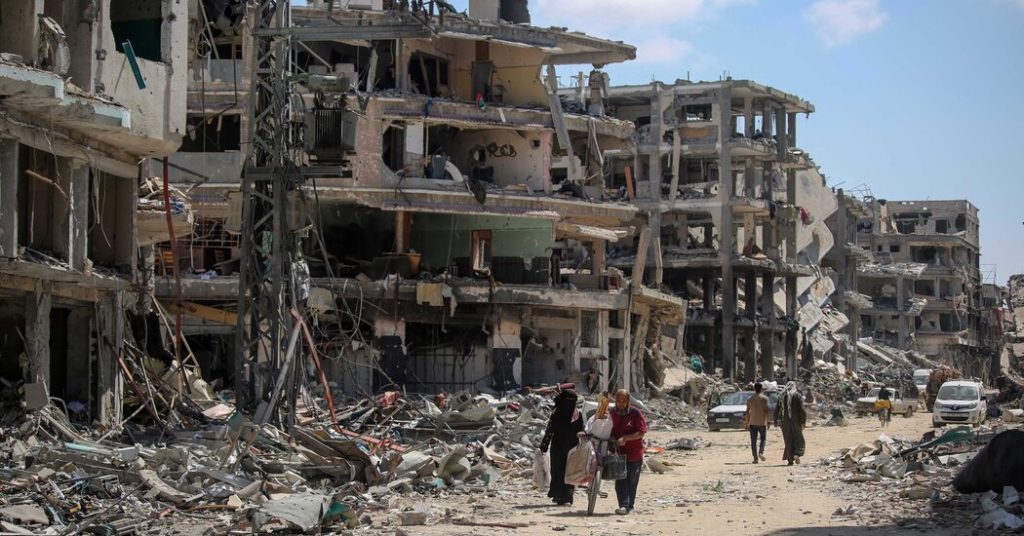Amidst a recent exchange of missile attacks between Israel and Iran, concerns arose regarding the potential impact on the ongoing war in Gaza. The Iranian attack was seen as retaliation for an earlier strike on an embassy building in Damascus that killed several Iranian officials. Israeli military analysts were unsure if a direct confrontation with Iran would alter the conflict in Gaza, which has been ongoing for six months. The possibility of Israel pursuing Hamas in Rafah, a city where many Palestinians have fled, could be a turning point in the war.
There were differing opinions among analysts regarding the implications for Gaza following the Iranian attack. Some believed that a major counterattack against Iran could overshadow the military campaign in Gaza, while others suggested that the Gaza conflict would remain unaffected. Retired Brigadier General Shlomo Brom warned of the potential for a multifront war if Israel responded forcefully to Iran, possibly delaying invasion plans for Rafah, a key Hamas stronghold. Prime Minister Benjamin Netanyahu remained committed to sending ground forces into Rafah despite international pressure.
General Brom suggested that a large-scale confrontation with Iran could bring an end to the conflict in Gaza, but it would require a comprehensive cease-fire involving multiple parties. While some Israeli officials indicated that the Iranian attack would not deter plans to invade Rafah, the situation remained uncertain. Military experts like General Amos Gilead dismissed any direct link between the Iranian attack and the Gaza conflict, arguing that Israel had the resources to handle both challenges separately.
Experts pointed out that the resources needed to combat Iran differed from those required to fight Hamas in Gaza. While Israel needed fighter jets and air defense systems to counter Iran, the focus in Gaza was on ground troops, drones, and attack helicopters. General Giora Eiland highlighted the success of the coalition in repelling the Iranian attack, suggesting that it could be an opportunity for Israel to end the Gaza war and improve its international standing. However, doubts remained about Prime Minister Netanyahu’s intentions to pursue such a path.
Despite broad support from the United States for Israel’s actions in Gaza, concerns were raised about the mounting death toll and warnings against a major ground assault in Rafah. The U.S. support in repelling the Iranian attack could potentially give it more leverage over Israel. While General Eiland saw the potential for Israel to gain goodwill internationally by ending the Gaza conflict and skirmishes with Hezbollah, he was skeptical of Netanyahu’s commitment to such a course. The situation remained uncertain, with the war in Gaza and the broader regional implications of the Iran-Israel conflict hanging in the balance.


